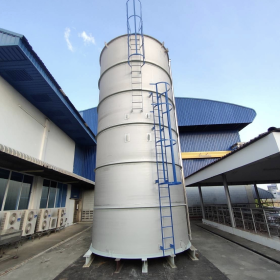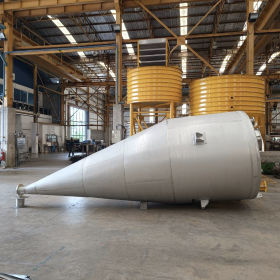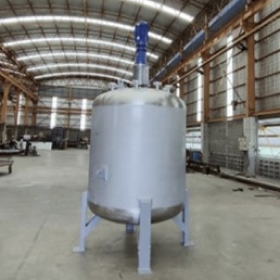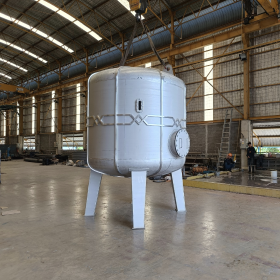Back to Top
Tank fabrication
Tank Fabrication: We are a manufacturer of industrial-standard steel and stainless steel tanks, certified by ISO 1009:2015 and compliant with ASME standards. Our welders hold welder certificates and have extensive experience in the industry. We specialize in producing various types of tanks, such as storage tanks, silo tanks, and custom-designed tanks according to customer requirements. Our QC team prepares reports and ensures that production meets your specifications in terms of design, strength, and product quality, giving you confidence in our work before delivery.
What is tank fabrication?
Tank fabrication is the process of creating custom-built vessels used for a wide range of industrial applications. These tanks play a crucial role in various sectors, including
- Chemical Processing : Holding and transporting corrosive chemicals, processing reaction mixtures, and storing finished products all require robust tanks built to specific pressure and temperature ratings.
- Food and Beverage Production : From fermentation vessels in breweries to storage tanks for milk and other liquids in food processing plants, tank fabrication ensures safe and hygienic containment throughout the production process.
- Pharmaceutical Manufacturing : Maintaining sterile environments and precise temperature control is critical in pharmaceutical production. Surasak Engineering creates high-quality tanks that meet stringent pharmaceutical industry standards.
- Oil and Gas Production : From storing crude oil extracted from wells to pressure vessels used in refineries, tank fabrication is essential for safe and efficient oil and gas operations.
- Wastewater Treatment : Tanks are used throughout the wastewater treatment process, from initial settling basins to storage tanks for treated water. Surasak Engineering offers tanks with corrosion-resistant materials suitable for harsh wastewater environments.
Types of tank fabrication
Surasak Engineering specializes in a variety of tank types, each designed for specific purposes
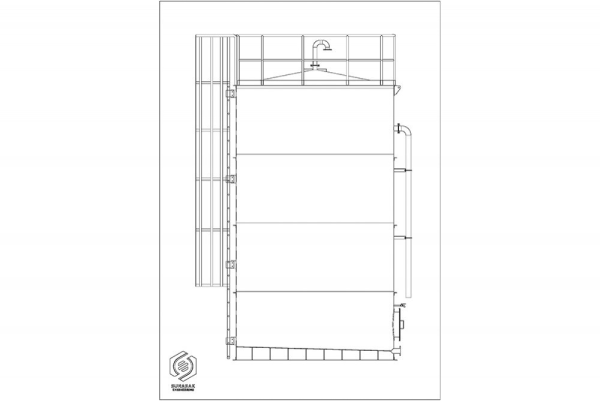
Storage Tank
A Storage Tank is a cylinder with a flat foundation. There are various sizes from diameter 1 meter to more than 10 meter depending on the customer. Storage tanks are fabricated from carbon steel or stainless steel.
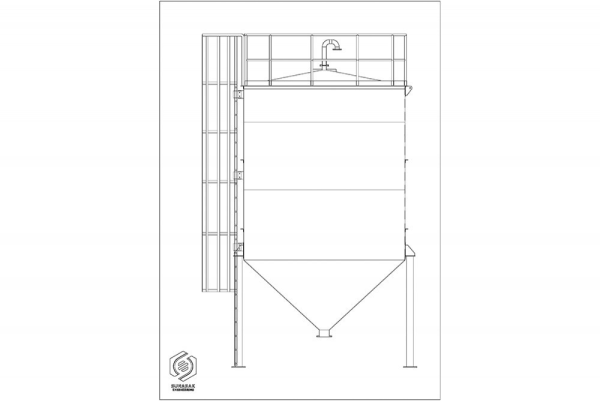
Silo Tank
Silo Tank is a conical tank. Mostly it has been used to stock power, rice,sugar, and agricultural crops because it is easy to transfer to other places.
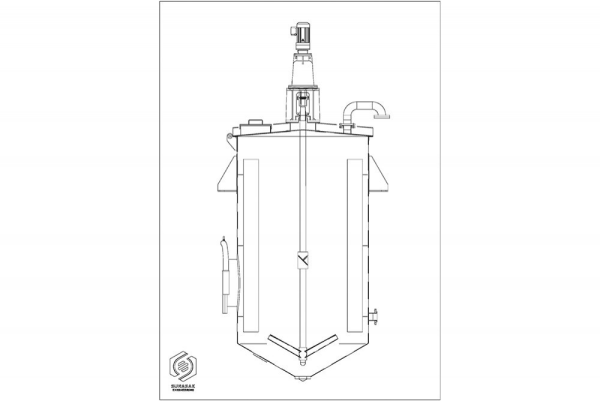
Mixing Tank
A Mixing Tank is a tank that is made of carbon steel or stainless steel. In side tank has an agitator that can mix ingredients in the tank together. Mostly it has been used in the food, beverage and chemical industry.
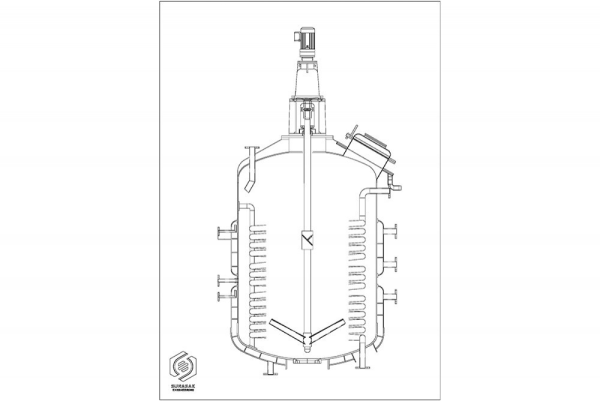
Reactor Tank
Reactor tank is similar to a mixing tank. It has an agitator and motor but the difference is the reactor tank has pressure inside the tank and has a heat exchanger inside the tank as well. The figure of the reactor tank is covered with a dish head form.
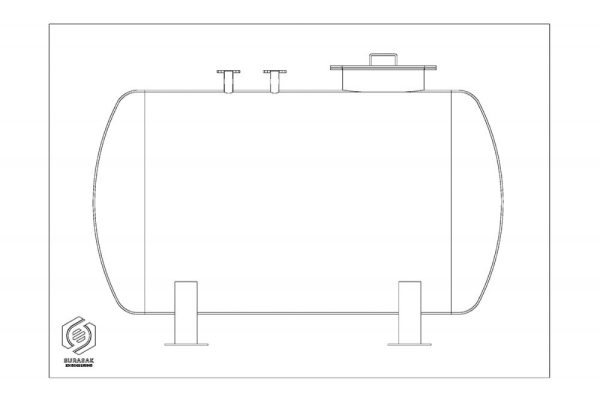
Pressure Vessel
A pressure vessel is a tank used for storing liquids or gasses that must be pressurized. The appearance of the tank is a closed tank with both the head and tail (bottom of the tank) closed with a curved lid (Dish Head). The thickness of the tank is thicker than a normal stock tank and has more weight than a normal stock tank. This is due to the coldness of the pressure tank. Depends on the pressure you want to use.
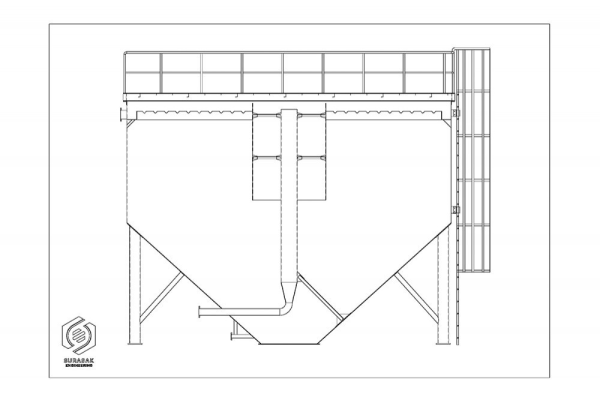
Sedimentation Tank
A sedimentation tank is a cylindrical sedimentation tank with a cone or pointed cone at the bottom of the tank to allow sediment to fall and be released, including a weir to allow clear, separated water to overflow.
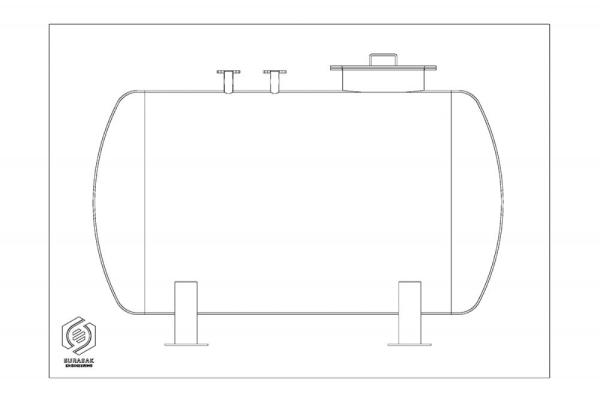
Aerator Tank
Aerator Tank Aerator tank refers to a pond or tank used to add air (aeration) into liquids by beating, stirring, or blowing air, such as an aeration tank in a wastewater treatment system using the activated sludge process. process) to increase the surface texture This causes the rate of oxygen dissolution in water at atmospheric pressure to increase. As a result, bacteria (bacteria) that need air can grow and multiply quickly. To decompose organic substances in wastewater. Most often, aeration tanks are used in drinking water factories or factories that need to treat water into good water.
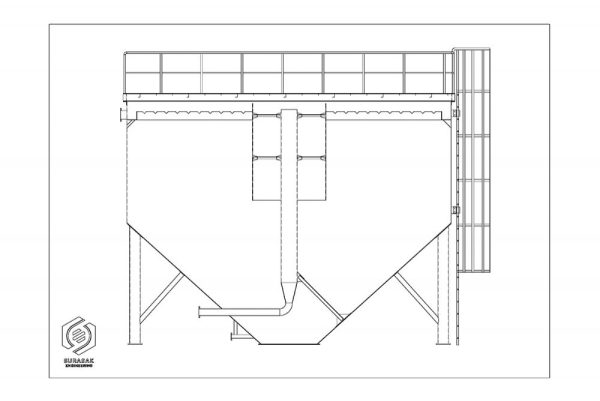
Customized Tank
Surasak Engineering provides one stop service for customized tank fabrication both carbon steel SS400 and stainless steel SUS304, SUS316, SUS316L. Customers can make sure our tank will be up to standard because we do a pressure test, welding test by our QC or third party observer.
Surasak Engineering is a leading tank fabrication company
Surasak Engineering is a leading tank fabrication company in Thailand, offering a comprehensive range of services to ensure your project's success:
- Consultation: Our team of experienced engineers will work closely with you to understand your specific application requirements. We will discuss factors like capacity, pressure rating, material compatibility, and desired features like heating/cooling jackets or instrumentation ports. Based on this information, we will recommend the optimal tank design and material selection for your project.
- Design: Our engineers will create detailed engineering drawings using cutting-edge design software. These drawings will include all necessary specifications for fabrication, ensuring your tank meets all functional and safety requirements.
- Fabrication: Our highly skilled welders and fabricators utilize state-of-the-art equipment and welding techniques to construct your tank according to the approved design. We use high-quality materials certified to meet industry standards.
- Inspection and Testing: Surasak Engineering prioritizes safety and quality. We conduct thorough inspections of your tank throughout the fabrication process, including weld inspections, material testing, and hydrostatic testing (for pressure vessels) to ensure the tank meets all relevant codes and standards.
- Installation: Our team can provide professional installation services for your tank, ensuring it is properly positioned, leveled, and connected to any necessary piping or equipment.
- After-Sales Support: We understand that your needs may extend beyond initial fabrication and installation. Surasak Engineering offers after-sales support, including maintenance recommendations and spare parts to ensure the long-term performance and reliability of your tank.
FAQs
FAQs about tank fabrication
What materials are used for tank fabrication?
The selection of material for your tank is crucial and depends on several factors, including:
- The contents being stored : Compatibility with the stored material is essential. For example, some chemicals may corrode carbon steel, requiring stainless steel or FRP tanks.
- Temperature and pressure requirements : Tanks need to withstand the expected operating temperatures and pressures. High-temperature applications may necessitate special alloys, while pressure vessels often use high-grade steel.
- Budgetary considerations : Material costs can vary significantly. Carbon steel is generally the most affordable option, while exotic alloys or thicker stainless steel will be more expensive.
Here are some of the most common materials used in tank fabrication:
- Carbon Steel : A cost-effective option for many applications, carbon steel offers good strength and durability. However, it is susceptible to corrosion and may not be suitable for all liquids.
- Stainless Steel : Offering superior corrosion resistance and good strength, stainless steel is a popular choice for various applications in the food, beverage, pharmaceutical, and chemical industries.
- Fiberglass-Reinforced Plastic (FRP) : Lightweight and corrosion-resistant, FRP tanks are ideal for storing corrosive liquids or applications requiring non-metallic construction.
- Aluminum : Lightweight and offering good corrosion resistance to specific elements, aluminum tanks can be suitable for certain applications.
- High-Alloy Steel : For extreme pressure and temperature conditions, special high-alloy steels may be required to ensure tank integrity.
Surasak Engineering's experienced engineers will help you select the most appropriate material for your tank based on your specific project requirements.
What are industrial fabricated tanks used for?
Industrial fabricated tanks have a wide range of applications across various industries. Here are some examples:
- Chemical Processing : Tanks are used for storing raw materials, reaction mixtures, and finished products. They may also be used for mixing, blending, and processing chemicals.
- Food and Beverage Production: From fermentation vessels in breweries to storage tanks for milk, juice, and other liquids, fabricated tanks play a vital role in food and beverage production, ensuring safe and hygienic storage.
- Pharmaceutical Manufacturing: Maintaining sterile environments and precise temperature control is critical. Fabricated tanks made from high-quality materials that meet stringent pharmaceutical industry standards are essential.
- Oil and Gas Production: From storing crude oil extracted from wells to pressure vessels used in refineries, fabricated tanks are crucial for safe and efficient oil and gas operations.
- Water and Wastewater Treatment: Tanks are used throughout the water treatment process, from initial settling basins to storage tanks for treated water. Surasak Engineering offers tanks with corrosion-resistant materials suitable for harsh wastewater environments.
- Power Generation: Tanks are used for storing water, fuel oil, and other fluids used in power plants.
This list is not exhaustive, and fabricated tanks can be found in numerous other industrial applications.
How are fabricated tanks maintained?
Proper maintenance is essential to ensure the longevity and performance of your fabricated tank. The specific maintenance requirements will depend on the tank's material, contents, and operating environment. However, some general maintenance practices include:
- Regular inspections: Visually inspect your tank for signs of wear, corrosion, leaks, or damage. Schedule more detailed inspections by qualified personnel at recommended intervals.
- Cleaning: Clean your tank regularly to remove any build-up of materials that could damage the tank or contaminate its contents. The cleaning frequency and method will depend on the specific application.
- Coating maintenance: If your tank has an internal or external coating, ensure it is properly maintained or reapplied as needed to protect the underlying material.
- Oil and Gas Production: From storing crude oil extracted from wells to pressure vessels used in refineries, fabricated tanks are crucial for safe and efficient oil and gas operations.
- Record keeping: Maintain a logbook to record inspections, cleaning procedures, and any repairs performed on the tank. This will help you track the tank's condition and ensure proper maintenance is carried out.
Surasak Engineering can provide guidance on developing a specific maintenance plan for your fabricated tank.
How long can a fabricated tank be used?
The lifespan of a fabricated tank depends on several factors, including:
- Material: Some materials, like high-grade stainless steel, can last for decades with proper maintenance. On the other hand, carbon steel tanks may have a shorter lifespan, especially in harsh environments
- Maintenance practices: Regular and proper maintenance significantly extends the lifespan of a tank.
- Operating conditions: Tanks exposed to extreme temperatures, pressures, or corrosive materials will likely have a shorter lifespan.
By selecting the right material, implementing a proper maintenance plan, and operating the tank within its design specifications, you can maximize the lifespan of your fabricated tank. Surasak Engineering can advise you on factors affecting your tank.
The Advantages of fabricated tanks
Fabricated tanks offer numerous advantages over other types of storage or containment solutions. Here are some of the key benefits
- Customization : Unlike pre-made tanks, fabricated tanks can be custom-designed and manufactured to meet your specific needs. This includes factors like size, shape, capacity, material, pressure rating, and features like heating/cooling jackets or instrumentation ports. Surasak Engineering's expertise allows us to create the perfect tank solution for your unique application.
- Material Versatility : A wide range of materials can be used in tank fabrication, allowing you to choose the most suitable option for your stored contents. This ensures compatibility and protects the tank's integrity. For example, stainless steel offers superior corrosion resistance for specific chemicals, while FRP is ideal for lightweight, non-metallic construction.
- Durability and Strength : Fabricated tanks are constructed using robust welding techniques and high-quality materials, resulting in strong and durable vessels that can withstand demanding industrial environments. They are built to last for years with proper maintenance.
- Leak-Proof Design : Unlike some traditional options like concrete tanks, fabricated tanks offer a leak-proof design. Seams are meticulously welded and inspected to ensure a watertight seal, protecting the stored contents and preventing contamination. This is crucial for applications where leaks could pose safety or environmental hazards.
- Scalability : Fabricated tanks can be designed and manufactured in a wide range of sizes, from small tanks for specific applications to large storage tanks for bulk materials. This allows you to scale your storage capacity as your needs evolve.
- Easy Maintenance : Many fabricated tanks are designed for easy cleaning and maintenance. Smooth interior surfaces and accessible openings facilitate cleaning procedures to prevent build-up and ensure optimal tank performance.
- Cost-Effectiveness : While the initial cost of a fabricated tank may seem higher than some pre-made options, the long-term benefits often outweigh the initial investment. The durability, leak-proof design, and ease of maintenance contribute to lower overall lifecycle costs.
- Safety Compliance : Surasak Engineering prioritizes safety. We fabricate tanks to comply with relevant industry standards and safety codes, ensuring your tank meets the necessary requirements for its intended use.
By choosing fabricated tanks from Surasak Engineering, you can benefit from a custom-designed, high-quality, and long-lasting solution for your industrial storage needs. We are committed to providing you with the best possible tank solution to meet your specific requirements.





